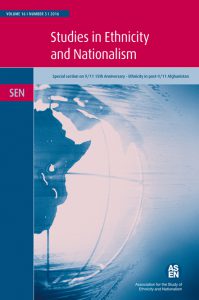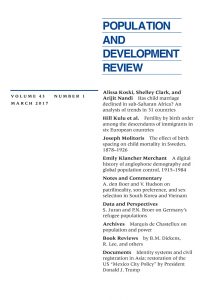Progressing from game theory to agent based modelling to simulate social emergence
 This article discusses some of the fundamental flaws in game theory and discusses agent based modelling as a successor to model social emergence.
This article discusses some of the fundamental flaws in game theory and discusses agent based modelling as a successor to model social emergence.
Axelrod (1984) made a major contribution to Game Theory in his book “Evolution of Cooperation” but thirteen years later he, dissatisfied with game theory, moves onto agent based modelling to rework his view of cooperation in his book in 1997 “The complexity of Cooperation: Agent-based Models of Competition and Collaboration”. In a similar move, the Santa Fe Institute in the US was established in 1984 to grapple with complex social issues and used agent based modelling amongst other techniques to “collaborate across disciplines, merging ideas and principles of many fields — from physics, mathematics, and biology to the social sciences and the humanities — in pursuit of creative insights that improve our world”. Additionally, the EU acknowledges the failure of traditional economics so adopts agent based modelling.
Agent based modelling captures the interaction between agents to simulate emergence whether at the physical or social level. NetLogo provides an extensive library of simulations of both physical and social emergence that shows the diversity of application of agent based modelling. These sample simulations can be readily tailored to meet the needs of social scientists. The software is free and there is a thriving enthusiastic community support group.
Why is there a move by a prominent game theorist, the Santa Fe Institute and the EU to agent based modelling? The article Game Theory as Dogma by Professor Kay (2005) discusses ample reasons to search for alternative techniques to model competition and collaboration and emergence in general. For instance.
The trouble with game theory is that it can explain everything. If a bank president was standing in the street and lighting his pants on fire, some game theorist would explain it as rational. (Kay 2005, p. 12)
Kay (2005, p. 12-13) provides a Homer Simpson example to illustrate the circular reasoning used by game theory to “explain”.
Even if the circular game theory explanation were sound, there still lacks the prediction aspect to validate game theory. The following exchange that reportedly took place during a meeting of Laplace and Lagrange with Napoleon Bonaparte (1769-1821) is used to illustrate the importance of prediction.
Napoleon: How is it, although you say so much about the Universe, you say nothing about its creator?
Laplace: No, Sire, I have no need of that hypothesis.
Lagrange: Ah but it is such a good hypothesis: it explains so many things!
Laplace: Indeed, Sire, Monsieur Lagrange has, with his usual sagacity, put his finger on the precise difficulty with the hypothesis: it explains everything, but predicts nothing.
(Source: Huang 2007 p. 11 Fundamental Forces of Nature)
Kay (2005, p. 20) discusses the failure of game theory to predict. “If predictions are counterintuitive and refuted by empirical evidence, then we should reject the model the predictions are based on, we should not reject the behaviour.” Game theory is based on rational choice theory (Von Neumann & Morgenstern 1944) that has at least two problems. First, there is ample psychological evidence that shows that rational choice theory predictions are at odds with reality. Second, rational choice theory relies on objective probabilities for decision making when in reality decisions are made within complex and changing environments where objective probabilities are unobtainable. Von Neumann and Morgenstern (1944 p.19) developed rational choice theory and stipulate its domain of applicability to objective probabilities when they warn against rational choice theory use with subjective probabilities. However, game theorists and some behavioural economists and economists continue to use rational choice theory with subjective probabilities. Van der Sal (2004, p. 432) notes that for nearly half a century the rational choice theory (Von Neumann & Morgenstern 1944) have been tested against individual behaviour but repeatedly the underlying assumptions and predictive value appear descriptively false. Tversky and Kahneman (1974, p. 1128) discuss anchoring and Kahneman and Tversky (1979) discuss prospect theory to model behaviour that is at odds with rational choice theory.
Neoclassical economics and game theory have blurred the distinction between subjective and objective probabilities by using rational choice theory beyond the domain intended by Von Neumann and Morgenstern (1944). If one assumes that the economy is static, it is feasible to approximate subjective probabilities with frequentist probabilities. However, the economy is not static.
Simon (1972; 1979) criticises the Rational Expectations Hypothesis (REH), an application of rational choice theory, for its assumption that people have unlimited information processing ability. Simon introduces the term ‘bounded rationality’ to describe a more realistic concept of human problem solving ability. It is perfectly rational for people to use ‘rules of thumb’ to make decisions, thus make the best use of their limited cognitive abilities. He states that economic models that fail to incorporate some form of bounded rationality are just bad economics.
This ‘rule of thumb’ and bounded rationality are easily accommodated within agent based models, such as, Adaptive Interactive Expectations (AIE). Figure 2-2 is informative because it compares the positioning of five models of behaviour relative to the intelligence of the agents and the interactiveness of the agents.
(Source: Adaptive Interactive Expectations (AIE))
Both the Rational Expectations Hypothesis (REH) – a neoclassical economic model of behaviour- and Game Theory use Rational Choice Theory but differ in that the agents of Game Theory interact directly with one another and the agents of neoclassical economics’ Rational Expectations Hypothesis interact via a price signal. An analogy of interaction is made between game theory and solids or networks and between the Rational Expectations Hypothesis and vacuums or fields. The field in this context means electric or magnetic fields, where a change in intensity affects all agents simultaneously. This field concept contrasts with agents linked in a network, where only the directly linked agents are instantly affected and the remaining agents wait for transmission to diffuse through the network.
In contrast to the unbounded rationality in Rational Choice Theory, the three models on the bottom axis use realistic ‘bounded rationality’ being Adaptive Expectations, Interactive Expectations and Adaptive Interactive Expectations (AIE). Adaptive Expectations form as an agent alters its future expectations based on the difference between actual results and past expectations but anchored on past expectations. Interactive Expectations form as agents consider the expectations of others in a noisy environment. Adaptive Interactive Expectation combines the two models within a small world network structure of interactions. The predictions of the AIE model outperform those of the Rational Expectations Hypothesis and the Adaptive Expectations models, while making realistic ‘rule of thumb’ and bounded rationality assumptions about the behaviour of the agents. The AIE and Adaptive Interactions models were simulated using the NetLogo agent-based modelling software.
The ideas discussed in this article are taken from and elaborated in Adaptive Interactive Expectations and Game Theory as Dogma.
References without hyperlinks
Kahneman, D & Tversky, A 1979, ‘Prospect Theory: An analysis of decisions under risk’, Econometrica, vol. 47, no. 2, pp. 263-92.
Simon, HA 1972, ‘Theories of bounded rationality’, in CB McGuire & R Radner (eds), Decision and Organization, Amsterdam, North-Holland, pp. 161-76.
— 1979, ‘Rational Decision Making in Business Organizations’, The American Economic Review, vol. 69, no. 4, pp. 493-513.
— 1984, ‘On the behavioral and rational foundations of economic dynamics’, Journal of Economic Behavior and Organization, vol. 5, no. 1, pp. 35-55.
Tversky, A & Kahneman, D 1974, ‘Judgment under uncertainty: Heuristics and biases’, Science, vol. 185, pp. 1124-31.
van der Sa, NL 2004, ‘Behavioral finance: How matters stand ‘, Journal of Economic Psychology, vol. 25, no. 3, pp. 425-44.
Von Neumann, J & Morgenstern, O 1944, Theory of games and economic behavior, Princeton University Press, Princeton.
<About> <Portfolio> <Academia> <LinkedIn> <Twitter> <Blog>
Member of the World Economics Association – promoting ethics, openness, diversity of thought and democracy within the economics profession.





1099-1328/asset/dsa_logo.jpg?v=1&s=e4815e0ca3064f294ac2e8e6d95918f84e0888dd)
Thank you for your comments.
—- Artem wrote > I feel that in your dismissal of game theory, you are targeting a straw man from the 80s.
———– Reply > Which is the game theory taught in universities that helps shape the opinions of students and future decision makers. This situation is of grave concern.
—- Artem wrote > Modern game theory involves models with no rationality assumptions (such as Evolutionary game theory, in which I specialize) and bounded rationality assumptions (Algorithmic Game theory in general).
———– Reply > The unbounded rationality assumptions in neoclassical economics are also relaxed at times, in an attempt to provide more realism. However, the underlying core doctrine remains the same, that is, equilibrium and ration choice theory formulation. If the assumptions of game theory continue to be relaxed to attain more realism and the interconnectedness of the agents retained, the model starts to look like an agent based model. This evolutionary path of realisation most probably took Axelrod from game theory to agent based modelling.
—- Artem wrote > Of course, ABM is often a tool to study inside these theories, however they are also treatable analytically.
———– Reply > To obtain analytical solutions in game theory requires gross over simplification of a situation. In contrast the computational solutions to agent based modelling simulation are unconstrained by the requirements of analytic solutions, which allows for more realism. Computing power is becoming cheaper allowing for even more realistic modelling.
—- Artem wrote > A theory is always stronger when we can actually prove (in the mathematical sense) things about it instead of relying on simulations.
———– Reply > A mathematical proof within pure maths is a fine thing to display ones mental agility and prowess. However, within the social field the set of assumptions used to prove a theory are merely another ideology if the theory fails empirical testing or not falsifiable. The other aspect to mathematical proof is that a conclusion can be merely a restatement of the assumptions. Denniss (R 2012, The use and abuse of economic modelling in Australia, The Australia Institue, Canberra) discusses the circular logic of mathematical models. For instance, an assumption is made that modelling government is not required to model the economy and the conclusion made that the government has little effect on the economy.
Economics seems to collect these zombie theories using mathematical proofs and continues to teach them, see ‘Zombie Economics’ by Professor Quiggin.
Unless models or theories can be empirically tested, they could well be the celestial mechanics of a non-existent universe, which is fine as an academic pursuit but people actually take these models and theories seriously and use them in policy development.
—- Artem wrote > This is especially true when our systems are so non-linear and sensitive to specification/initial-conditions and when we have such a poor grasp of how empirically observed and model parameters relate.
———– Reply > Testing simulations against reality, provides a scientific approach. The EU acknowledges the failure of traditional economics to predict so adopts agent based modelling
http://williampaulbell.wordpress.com/2010/01/02/eu-acknowledges-the-failure-of-traditional-economics-to-predict-so-adopts-agent-based-modelling/